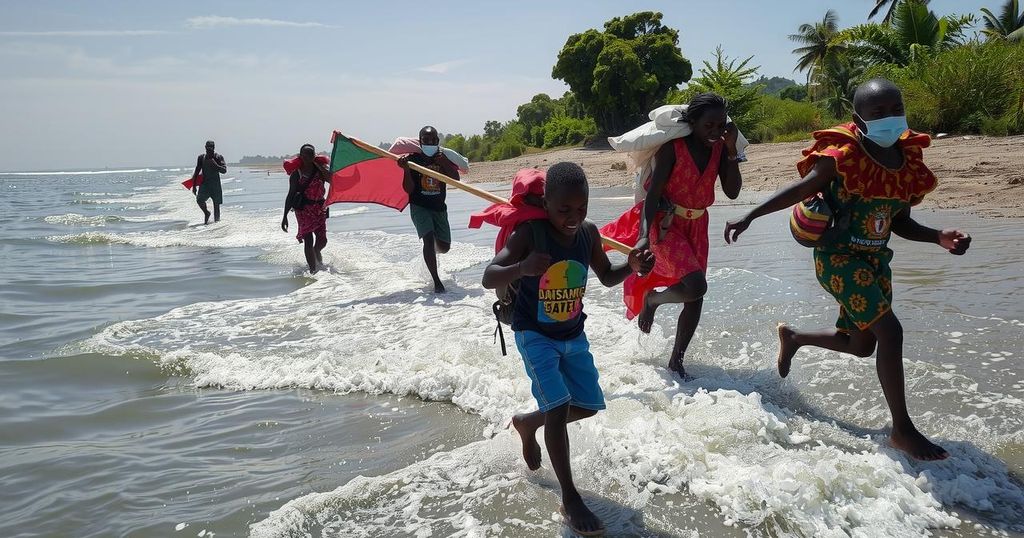More than 13,000 Mozambicans have fled to Malawi due to violence from the contested presidential elections. Food shortages in evacuation centers have become critical, prompting local leaders to provide aid. The political unrest has led to significant fatalities, increasing the urgency for humanitarian assistance for the incoming refugees.
In recent weeks, over 13,000 Mozambicans have sought refuge in Malawi, fleeing violence incited by the contested presidential election held on October 9. Reports indicate that the majority of these refugees are women and children, and the number is anticipated to rise as the political situation remains unstable. Refugee support facilities are struggling with resources, facing shortages of food and essential items due to the influx of asylum-seekers.
Sofia Jimu, a traditional leader who relocated to Malawi, revealed the dire conditions at the evacuation center where she is temporarily residing. She reported that malnutrition has become critical, with three children collapsing from hunger within a single day. Fortunately, assistance arrived as she received a supply of maize flour and beans for distribution among the residents.
The conflict in Mozambique intensified after the Constitutional Council officially recognized Daniel Chapo of the Frelimo Party as the election winner. This decision has been contested by the opposition candidate Venancio Mondlane, leading to significant unrest and violence that has reportedly resulted in over 200 fatalities since the protests began.
Commissioner Dominic Mwandira of Nsanje district expressed concerns over the insufficient resources available to assist the growing number of asylum-seekers. He mentioned, “In terms of food and then nonfood items, tents, issues of water, they are several,” underscoring the critical need for aid. Local organizations such as the Malawi Red Cross Society and Plan International have commenced efforts to provide support for the refugees.
Jane Mweziwina, a program area manager at Plan International, highlighted the vulnerabilities faced by specific demographics during such crises. She advised, “Our advice to the leadership is that they take special consideration for these special groups of people in terms of accommodation, security, even in terms of food.” Efforts are being made to relocate the asylum-seekers to more spacious centers, while the United Nations High Commissioner for Refugees is assessing their needs in conjunction with Malawi’s Department for Refugees.
The situation in Mozambique has deteriorated significantly following the controversial presidential elections, which have led to heightened political tensions and violence. After the election results were announced, protests erupted, and violence ensued, prompting thousands to flee for safety into neighboring Malawi. The conditions in refugee camps have raised urgent humanitarian concerns, as local authorities and organizations struggle to provide necessary resources to the increasing number of displaced individuals.
In summary, the influx of Mozambican refugees into Malawi amidst post-election violence reveals the dire consequences of political strife. The challenges faced in accommodating these individuals highlight the urgent need for increased humanitarian assistance and careful consideration for the most vulnerable groups among the refugees. Continued support from local and international organizations is essential to address the immediate needs of the affected population.
Original Source: www.voanews.com






